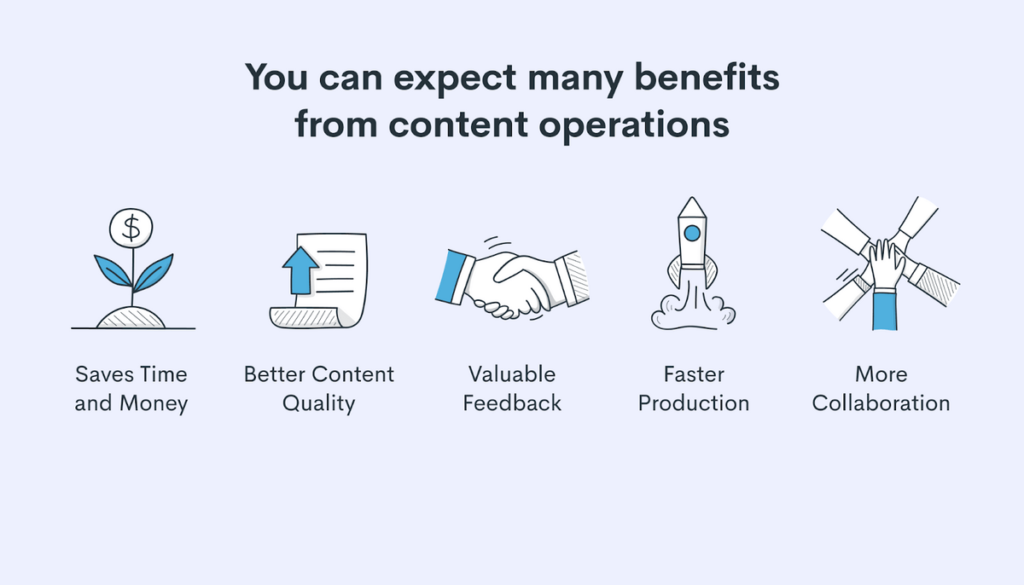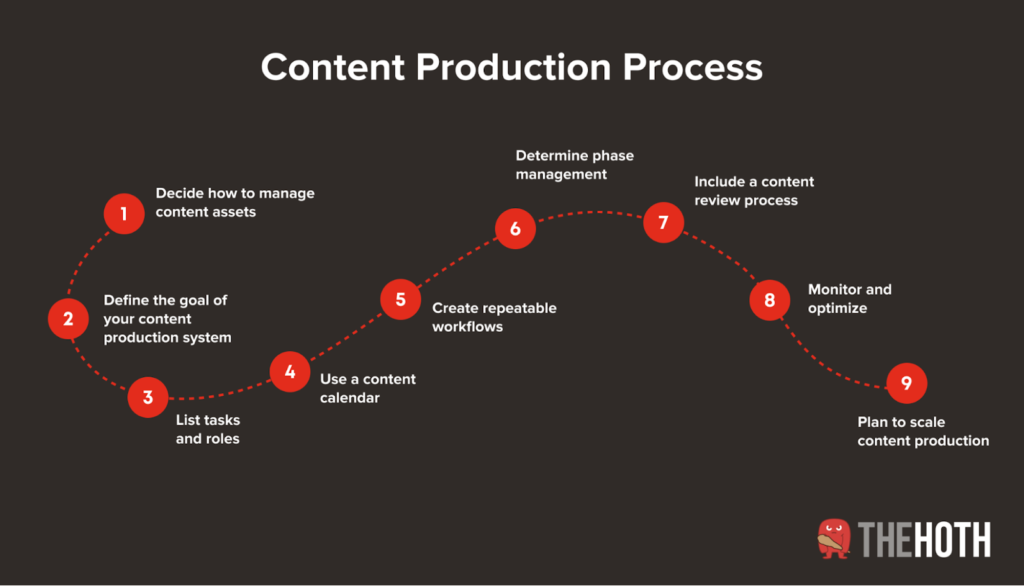
Content production involves creating various digital and multimedia forms to engage and inform a target audience, including articles, blog posts, videos, infographics, and social media posts.
Content production has become essential to any business’s marketing strategy in today’s digital age. Effective content production can help a company establish a strong brand identity, generate leads, increase conversions, and build customer loyalty.
In this blog post, we will explore what content production is, how it works, and its benefits. We will also provide a step-by-step guide on producing content for your business and highlight the advantages of Pepper Content for your content production needs.
What is Content Production?
Content production involves creating various types of content designed to inform, engage, and entertain a target audience. The content can include written articles, blog writing, social media posts, videos, podcasts, infographics, and other multimedia formats. Digital content production aims to attract and retain a specific audience by delivering relevant and valuable information that meets their needs.

Benefits of content production
Effective content production has numerous benefits for businesses, including,
- Improved brand awareness: Content production helps companies establish a strong brand identity, positioning them as thought leaders in their industry.
- Increased website traffic: Producing high-quality content regularly can drive more traffic to a business’s website.
- Higher search engine rankings: Search engines like Google prioritize websites that consistently produce high-quality content, improving their visibility and rankings.
- More lead generation: Creating engaging content that offers value to potential customers can help businesses generate more leads and sales.
- Better customer relationships: High-quality content can build customer trust and loyalty, leading to long-term relationships.

How Does Content Production Work?
Content production involves a multi-step process that includes research, planning, creation, optimization, and distribution. The following are the critical steps in the digital content production process:
- Research: The first step in content production is researching and identifying relevant topics for your target audience. This can involve using keyword research tools, analyzing social media trends, and conducting customer surveys.
- Planning: Once you have identified the topics, the next step is to plan the content by creating an editorial calendar, outlining the key points, and determining the format of the content.
- Creation: After planning, the actual content creation process begins. This can involve writing articles, shooting videos, designing infographics, or recording podcasts.
- Optimization: Once the content is created, optimizing it for search engines and social media platforms is essential. This can involve keyword optimization, adding meta descriptions and tags, and formatting the content for readability.
- Distribution: The final step in content production is distributing the content through various channels, such as social media, email marketing, and content syndication.

Using Pepper Content for Content Production
Pepper Content is a content creation platform that helps businesses produce high-quality content quickly and efficiently. Here are some advantages of using Pepper Content for your digital content production needs.
- On-demand subject matter experts: With Pepper, businesses get access to a team of on-demand subject matter experts who can help with their content production needs.
- Content creation at speed and scale: Pepper helps companies create content quickly and efficiently, allowing them to keep up with the demands of their marketing strategy.
- High-quality content: Pepper ensures that the content created is high quality and consistent with a business’s brand image.
- Hassle-free guided flow: Pepper’s easy-to-use platform allows companies to share their content briefs seamlessly, ensuring hassle-free communication with content creators.
Key Factors in Content Production
1. Analytics
When it comes to content production, it’s essential to keep in mind that the process is ongoing. Even after you’ve created and published content, you’ll need to monitor its performance and make adjustments as necessary. This is where analytics come in.
Analytics can help you measure your content’s effectiveness and identify improvement areas. One way to track the performance of your content is through website analytics. Platforms like Google Analytics can give you insights into how much traffic your website receives, where that traffic comes from, and how users interact with your content. This information can help you identify popular pieces of content and pages or posts that may need some optimization.
In addition to website analytics, social media analytics can also be a valuable tool for monitoring the performance of your content. Platforms like Facebook, Twitter, and Instagram offer insights into engagement metrics like likes, comments, shares, and demographic information about your audience.
By analyzing this data, you can determine which types of content resonate with your audience and adjust your digital content production strategy accordingly.
2. Consistency
Consistency is crucial in content production to maintain brand image and engagement with the audience. Creating high-quality, relevant, and consistent content with your brand voice helps build trust and credibility with your target audience. Additionally, consistently producing content can help establish a solid online presence, improve search engine rankings, and increase website traffic.
3. Strategies
To ensure successful content production, it is essential to have a clear understanding of your target audience and their preferences. Researching your audience’s interests, pain points, and online behavior can help inform your content strategy. Creating a content calendar can also ensure content is produced consistently and efficiently. Utilizing a mix of different content formats, such as blog posts, videos, and social media posts, can also keep your audience engaged.
4. Tools and resources
Various tools and resources are available to help with content production, from content management systems to graphic design software. Utilizing these tools can help streamline the content creation process and improve the quality of your content.
Some popular tools and resources for content production include Hootsuite, Canva, and Grammarly.
How Pepper Content Can Help with Content Production
Pepper Content offers businesses access to on-demand subject matter experts who can help with content creation, editing, and strategy. By utilizing Pepper’s services, companies can ensure that their content is high quality, consistent with their brand voice, and produced at speed and scale. Pepper’s easy-to-use platform also allows businesses to track progress and communicate with their content team seamlessly.

In Summary
Effective content production can benefit businesses, from establishing a solid online presence to increasing website traffic and engagement. Companies can produce high-quality, consistent content that resonates with their target audience using the right strategies, tools, and resources. And by partnering with a trusted content production platform like Pepper Content, businesses can easily streamline the content creation process and achieve their content goals.
Latest Blogs
Learn how to rank on AI search engines like ChatGPT, Perplexity, and Gemini by optimizing your content for authority, structure, and relevance. Stay ahead in AI-driven search with this strategic guide.
Explore the best healthcare SEO services for your medical practice. Improve online visibility and effectively reach more patients in need of your services.
Discover top social media agencies specializing in banking solutions, enhancing financial services and driving engagement.
Get your hands on the latest news!
Similar Posts

B2C Marketing
5 mins read
Top Choices for Best Content Marketing Services in B2B Industries

Artificial Intelligence
5 mins read
How A Lead Generation Specialist Can Use AI-Powered Content Funnels to Drive Conversions

Artificial Intelligence
4 mins read